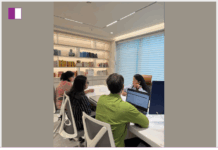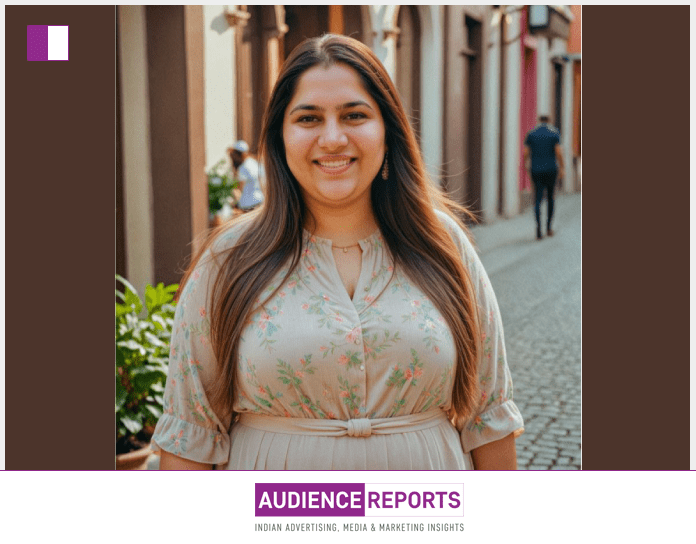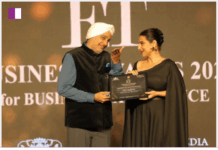Pia Singh, the visionary Founder of MindSmith, has always been passionate about fostering mental well-being in the workplace. But recently, her focus has expanded beyond the teams she nurtures to include the mental health of leaders and founders themselves. In a deeply personal reflection, Pia Singh shared a candid moment that many entrepreneurs will resonate with—the feeling of being overwhelmed by the weight of leadership.
Pia Singh began her journey with MindSmith full of excitement, dreams, and a sense of purpose. She believed in her mission to create meaningful change through her company, but as she lay awake at 4 AM, her mind racing with concerns about deadlines, investor meetings, cash flow, and team dynamics, she realized that the passion that once fueled her was now threatening to consume her. Like many founders, Pia Singh had been focused so intensely on her company’s success that she began to neglect her own well-being.
In her post, Pia Singh describes a pivotal moment when a fellow founder, Atul, reached out to her for a coffee. As they sat together, nursing espressos and sharing their struggles, Pia Singh realized just how much she and Atul had in common. The constant pressure to succeed, the isolation that comes with leadership, and the fear of failure were challenges they both faced daily. Atul admitted to feeling like he was drowning, but as a founder, he felt he had to keep up appearances and pretend that he had all the answers.
This conversation was a turning point for Pia Singh. She recognized that, as founders, they often focus so much on their companies’ mental health that they forget to take care of their own. Pia Singh realized that wearing stress and burnout like badges of honor wasn’t a sustainable or healthy approach to leadership. In fact, she came to understand that a burnt-out founder simply cannot lead effectively. The mental health of the founder directly impacts their ability to make good decisions, foster creativity, and inspire their teams.
Determined to make a change, Pia Singh and Atul made a pact to prioritize their mental health. They committed to scheduling regular “founder therapy” sessions—honest conversations where they could talk openly about their struggles without the pressure to perform or network. Pia Singh knew that these sessions would provide a much-needed outlet for both of them to express their fears and challenges in a supportive environment.
But Pia Singh didn’t stop there. She recognized the importance of setting boundaries in her work life. Like many entrepreneurs, she had fallen into the trap of believing that endless hustle was the key to success. Now, she was learning that rest and recovery are just as essential. By setting clear limits on work hours and sticking to them, Pia Singh knew she could preserve her energy and maintain her focus for the long haul.
Another key insight for Pia Singh was the importance of cultivating interests outside of her startup. She realized that when a founder’s identity becomes too closely tied to their company, the highs and lows of business can feel all-consuming. By pursuing passions and hobbies outside of MindSmith, Pia Singh found a way to maintain perspective and balance. This shift allowed her to approach challenges with a clearer mind and renewed creativity.
Pia Singh also emphasized the importance of seeking professional help when needed. Mental health struggles are often stigmatized, especially in high-stakes entrepreneurial environments, but Pia Singh wants to change that narrative. She encourages other founders to seek therapy or coaching without shame or hesitation, understanding that professional support can be a vital tool for maintaining well-being.
Perhaps one of the most significant realizations Pia Singh had was the power of vulnerability and openness in leadership. By being more transparent with her team about the challenges she faced, Pia Singh fostered a culture of authenticity and mutual support. She realized that by sharing her own struggles, she could build stronger connections with her team and create an environment where everyone felt safe to express their concerns and ask for help.
Pia Singh’s message is one that resonates deeply with other founders and leaders. As she says, “Your mental health matters.” The well-being of a founder is not secondary to their company’s success—it is essential to it. Pia Singh knows firsthand that it’s okay not to have all the answers, and it’s okay to struggle. Most importantly, it’s okay to ask for help. Her personal experiences have made her a powerful advocate for mental health within the entrepreneurial community, and her work at MindSmith is a testament to her commitment to creating healthier workplaces from the top down.
Through MindSmith, Pia Singh is not just advocating for mental health in the workplace; she is championing the mental health of the leaders who create those workplaces. She believes that a mentally healthy founder ecosystem will lead to healthier companies, happier teams, and ultimately, a better world. Pia Singh’s journey is a reminder that leadership is not just about driving results—it’s about maintaining balance, well-being, and resilience in the face of inevitable challenges.
For Pia Singh, this conversation with Atul was a turning point. It helped her see that by taking care of herself, she wasn’t being selfish—she was ensuring that she could continue to be the leader her team deserved. Pia Singh knows that in the high-pressure world of entrepreneurship, it can be easy to lose sight of the bigger picture. But by prioritizing mental health, founders like Pia Singh are building a foundation for sustainable success that benefits both themselves and the people they lead.
Pia Singh poses an important question to her fellow founders: “How are you really doing?” It’s a simple but powerful reminder that in the wild, wonderful, and sometimes overwhelming journey of entrepreneurship, it’s vital to check in with ourselves and each other. Pia Singh’s leadership is not just about building businesses—it’s about fostering a culture of care, compassion, and mental well-being for all.







































